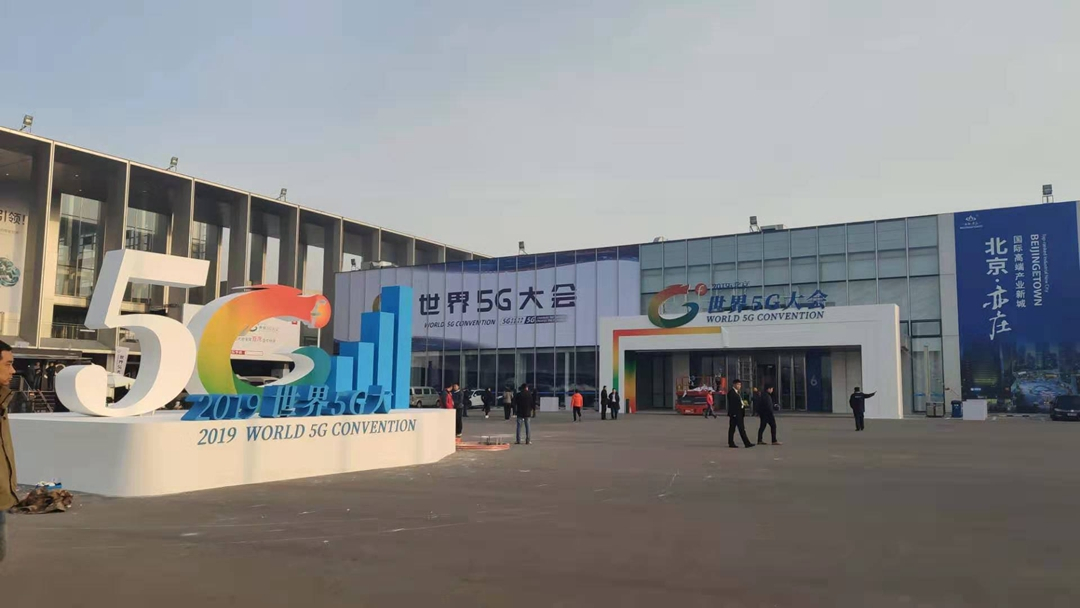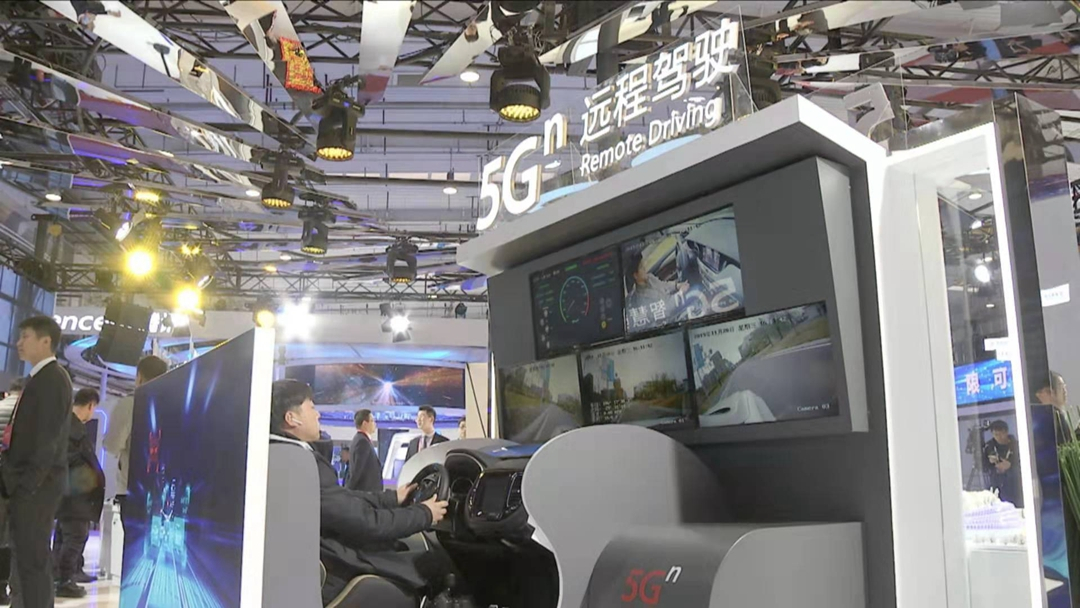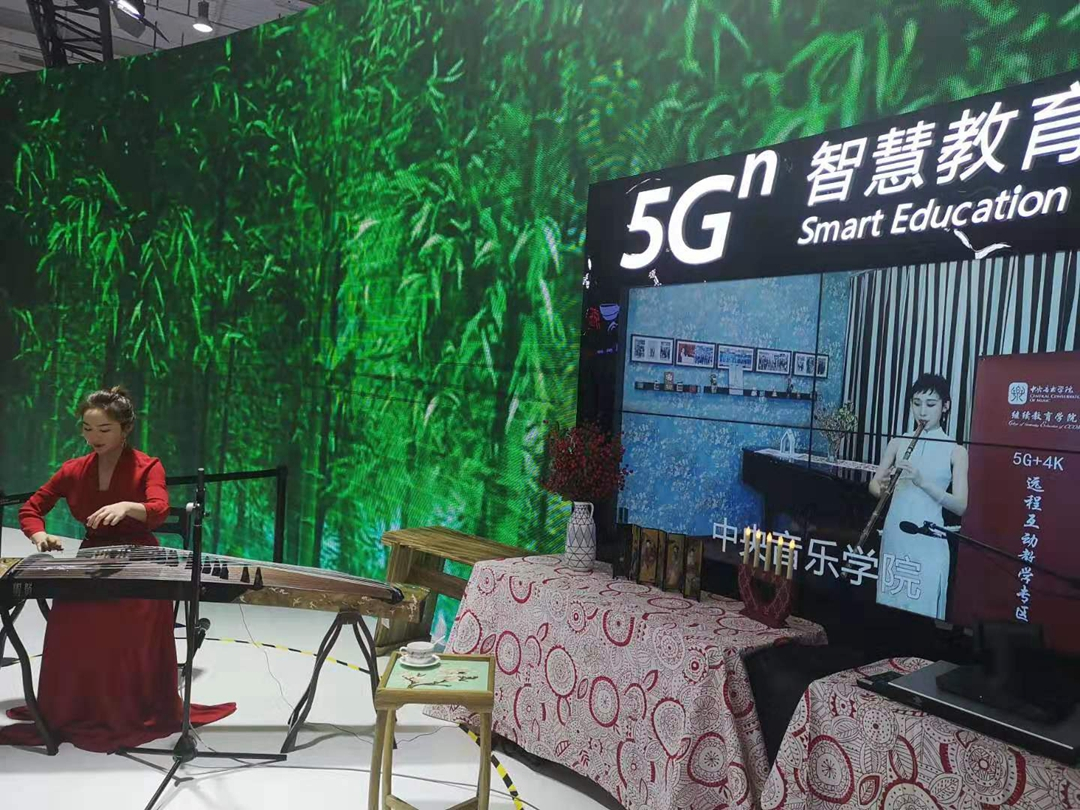2019 marks the first year of the commercialization of 5G and China has been a pioneer in research and rollout of the ultra-fast next generation mobile network.
So how far has China gone? A glance has been offered at the inaugural World 5G Convention which has brought together thousands of experts and industry insiders this week in Beijing to exchange ideas and showcase the latest applications of 5G.

The first World 5G Convention is held in Beijing from November 20 to 23. /CGTN Photo
The first World 5G Convention is held in Beijing from November 20 to 23. /CGTN Photo
5G users in China to exceed 200 million by 2020
China in June pressed the fast-forward button of 5G by granting commercial licenses to the major carriers, and officially switched on the 5G network at the end of October.
So far, a total of 113,000 5G base stations have been put into service across the country, and 870,000 mobile users have subscribed to 5G packages, showing good momentum, Miao Wei, China's minister of industry and information technology, said at the opening ceremony of the event.
Xu Zhijun, rotating chairman of Huawei, a world-leading company in 5G, expects China's 5G users to exceed 200 million by next year. He said China has the conditions to build the world's best 5G.
"China is the best in the world in terms of spectrum resources, number of base stations and construction capabilities, as well as consumers' demand, the participating willingness of different industries and companies, and government support," he explained.

The next generation technology is still in the early stages of rollout. /CGTN Photo
The next generation technology is still in the early stages of rollout. /CGTN Photo
5G applications on faster track in China
Although 5G is still at its very early stage of development, China has been actively exploring its applications in different areas.
At the exhibition hall of the convention, telecom carriers and dozens of tech companies showcase their latest products and applications, amazing viewers on how intelligent and convenient 5G is going to make their lives and work in the near future.
Watch CGTN's live streaming of the 5G applications showcased at the World 5G Convention here:
Live: Get to speed with 5G applications at ongoing Beijing event
Comfortably sitting in a simulated cabin at the exhibition hall, one can remotely control a self-driving car in southwest China's Chongqing city, about 1,500 kilometers away, by looking at the screens at the front displaying feeds from the cameras on the car's roof, thanks to the high speed and low latency 5G network.

Sitting in a simulated cabin at the exhibition hall in Beijing, one can remotely control a self-driving car in southwest China's Chongqing Municipality, about 1,500 kilometers away. /CGTN Photo
Sitting in a simulated cabin at the exhibition hall in Beijing, one can remotely control a self-driving car in southwest China's Chongqing Municipality, about 1,500 kilometers away. /CGTN Photo
And the very features of 5G also enable two musicians tens of kilometers away from each other to perform a musical ensemble just like they are at the same place.

Two musicians tens of kilometers away from each other can perform a musical ensemble just like they were on the same stage. /CGTN Photo
Two musicians tens of kilometers away from each other can perform a musical ensemble just like they were on the same stage. /CGTN Photo
But 5G can enable far more things than that, according to experts.
"Through the in-depth integration of 5G technology with education, medical services, industrial manufacturing and many other industries, it will promote the deep integration of digital economy and real economy, creating more new applications, new industries and new values," said Wang Zhigang, China's minister of science and technology.
Zhou Huimin, head of marketing operations of Huawei Wireless Network, told CGTN that the company has provided solutions based on 5G technology that make various vertical industries such as mining, manufacturing and traffic planning more intelligent and efficient.
And experts believed that 80 percent of 5G applications will be in the industrial Internet of Things, as 5G will make smart manufacturing possible thanks to its features of ultra-high speed, low latency and multiple connections.
"5G is the infrastructure for the digital transformation in various industries, and it takes time and needs coordinated development," said Xu Zhijun, adding that 5G needs to work with artificial intelligence, big data, cloud computing and other technologies to create greater value.